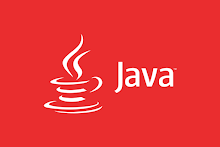The key highlights of the judgment, which originates from the guarantee of life and personal liberty in Article 21 of the Constitution, are as follows:
- Life and personal liberty are inalienable, which are inseparable from a dignified human existence.
- Privacy includes at its core the personal intimacies, the sanctity of family life, marriage, procreation, the home and sexual orientation.
- Privacy safeguards individual autonomy and recognises the ability of the individual to control vital aspects of his or her life.
- Those who are governed are entitled to question those who govern, about the discharge of their constitutional duties including in the provision of socio-economic welfare benefits.
Being a website with an extra affection for open source and security, we keep telling you about various security threats creeping into our digital lives from time-to-time. The forces responsible for these threats vary; they could be cyber criminals, state-sponsored attacks and surveillance, or data snooping by big corporations. The latest Supreme Court ruling impacts all these scenarios in a different manner.
How does Right to Privacy affect government, private corporations, and citizens?
Apart from being the basic rights of a citizen, the Fundamental Rights were added by the constitution makers as a check on the government. Being called one of the most progressive judgments in Independent India, Right to Privacy ruling will ensure that the citizens will be able to question the government’s action.
Now you can sue the government if you think your privacy is being violated. It’ll also force the government to prescribe new laws and regulations for its own agencies to protect consumer interests. Moreover, the future consumer and digital laws will need to be designed with an inherent expectation of privacy.
This ruling will prompt the corporates to adopt better policies to protect your privacy. They’ll need to tell you about their data collection practices and the usage of that data in a clearer manner. It’ll also be a responsibility of the government to ensure that the prescribed parameters are followed by all private players.
The judgment underlines the importance of informational privacy but we shouldn’t expect much when it comes to the surveillance that’s in accordance with the legal procedures as the Right to Privacy is not an absolute right. So, in near future, according to the legal experts, nothing big is going to happen on the front of state-sponsored surveillance. However, nobody denies a long-term impact.
This will also make things harder for the Indian government which insisted in court that not every aspect of privacy is a fundamental right. Adding to the same argument, Attorney-General for the Centre, K.K. Venugopal, said: “Some citizens cannot agitate against Aadhaar, saying it is a violation of their right to privacy. An elite few cannot claim that their bodily integrity would be violated by a scheme which serves to bring home basic human rights and social justice to millions of poor households across the country.”
Now you can sue the government if you think your privacy is being violated. It’ll also force the government to prescribe new laws and regulations for its own agencies to protect consumer interests. Moreover, the future consumer and digital laws will need to be designed with an inherent expectation of privacy.
When the government launched biometric Aadhar database, the largest biometric identity scheme in the world, it was promoted as a voluntary scheme. But, over the past few years, it has been mandatory for various public welfare schemes. A smaller bench is currently looking into the validity of the Aadhar.
Along the similar lines, senior advocate Sajan Poovayya, one of the petitioners, argued: “If a private player takes my data and gives it to all, I can sue him for breach of contract. But if I give it to the State, where are the corresponding restrictions and deterrents?”
As no fundamental right is absolute, it’s too quick to declare the extent of the impact of the ruling and its interpretation by government and courts. Things are not going to remain same, there’s no doubt about that. Moreover, it’s pleasing to note that the right of a citizen to be the master of body and soul has been recognized.
Don’t forget to share your views and inputs on the impacts of Right to Privacy ruling and become a part of the discussion.


Comments
Post a Comment